COVID-19 Community Briefings
Across Wellstar Health System, our clinical leaders are sharing critical information about the COVID-19 pandemic to keep communities in Georgia safe.
Keeping Our Community Healthy Amid COVID-19
With the state of the COVID-19 pandemic constantly evolving due to the emergence of new variants, Wellstar remains committed to providing our communities with the latest data and resources to help them make informed decisions about their health and safety.
Each month, Wellstar experts address our community on the most up-to-date details regarding the current state of the virus in our region, the number of COVID-19 cases, testing availability and accessibility as well as the latest vaccine information.
State of COVID-19 Community Briefing from December 3rd, 2021
Featuring the latest information from:
- Danny Branstetter, MD, Wellstar Medical Director for Infection Prevention
- Avril Beckford, MD, Wellstar Chief Pediatric Officer
- Andrew Doyle, MD, Wellstar Medical Director of Ambulatory Pediatrics
- Paula Greaves, MD, Wellstar Chief of Women’s Health
- Jeffrey Hines, MD, Wellstar Medical Director of Diversity, Inclusion & Health Equity

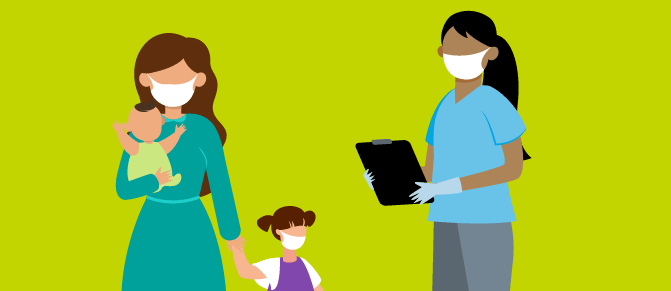
Pediatric COVID-19 Testing
As new variants of the virus emerge and spread, parents may be worried about their child’s health and possible COVID-19 exposure. Before you take your child for a COVID-19 test, it’s important to know the proper location for their medical circumstance.
Learn more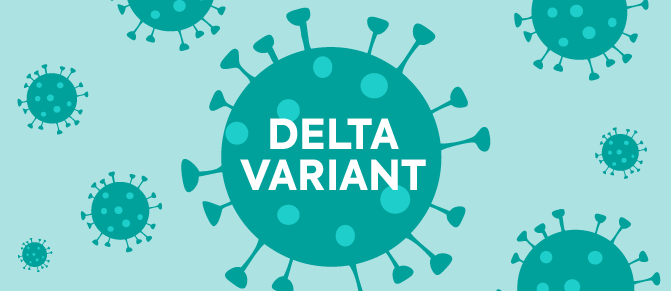
Facts About the Delta Variant
The Delta variant of COVID-19 is more contagious and spreading quickly in the U.S. Keep yourself and others protected by getting the COVID-19 vaccine and following the 3Ws — wear a mask, wash your hands and watch your distance.
Learn more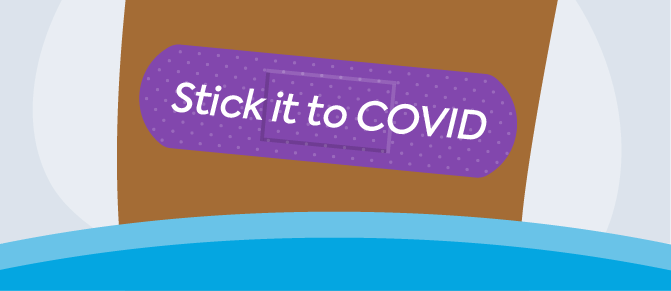
Get Updates on the COVID-19 Vaccine
As all Georgians become eligible for the COVID-19 vaccine, Wellstar encourages our patients to “Stick it to COVID” and get the shot to help boost immunity in your community.
Learn more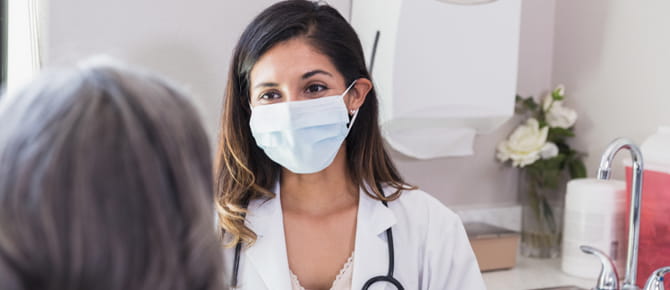
Cancer Care During COVID-19
We know this is a very difficult time, and we want to reassure you that we are more committed than ever to meeting the needs of our oncology patients. Our dedicated teams continue to monitor the current situation, and we are taking every possible precaution to ensure the health and safety of the people we care for each day.
Learn more
Emergency Care During COVID-19
Medical emergencies such as heart attacks, strokes or serious behavioral health issues don’t stop during a pandemic. While we are on the frontline fighting COVID-19, our expert medical team is still equipped to safely treat patients with other life-threatening conditions.
Learn moreRead related articles
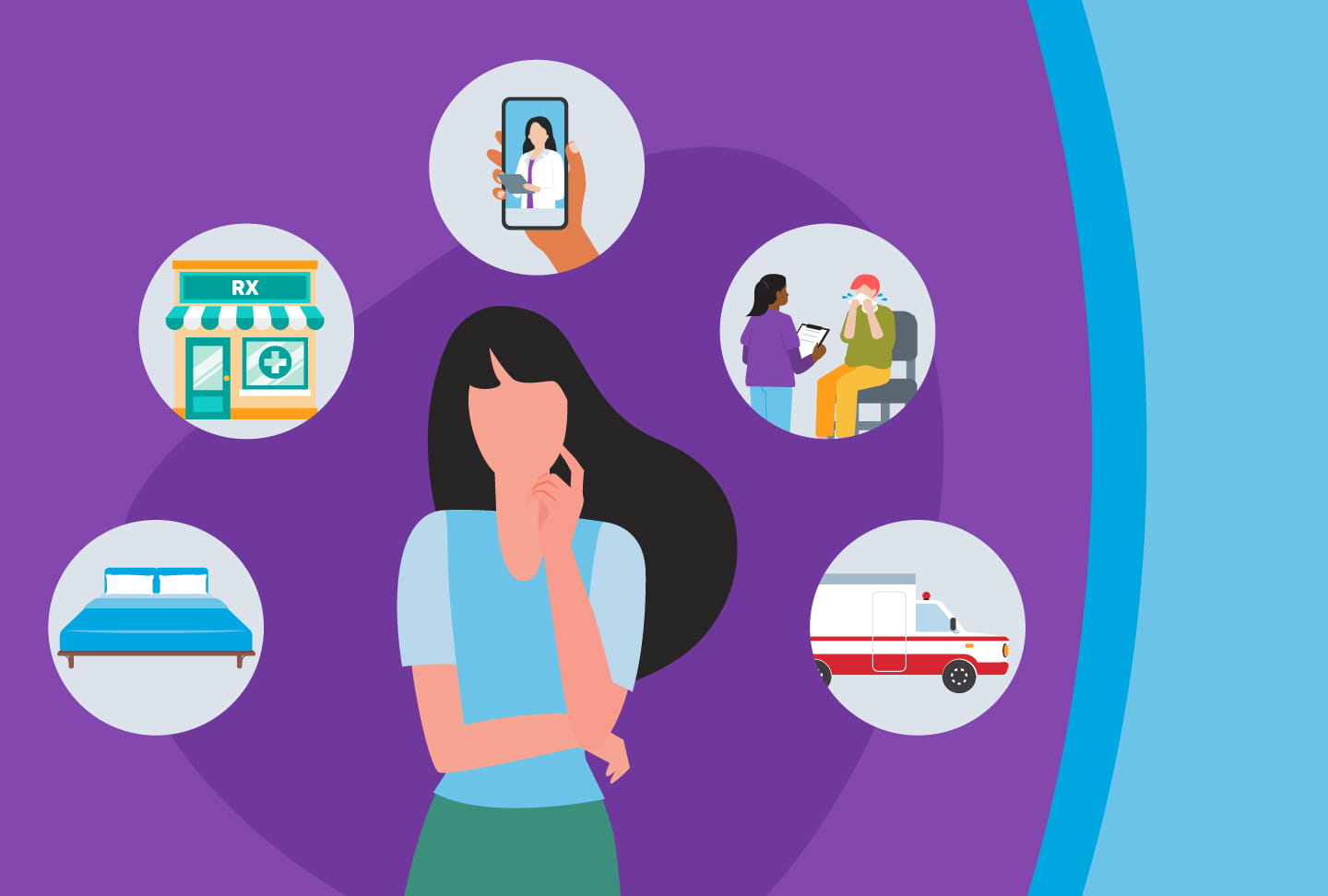
Highlights
Feeling Sick? Know Where to Go to Get Care
Whether you experience an injury, minor illness or simply need a wellness exam, the most important step you can take is getting the care you need. That way, you can find trained experts for your specific medical needs, stay ahead of potential health issues or even help prevent your condition from worsening.
With primary, virtual, urgent and emergency care services available, as well as retail pharmacies, how do you decide which type of care is best for your medical situation? Learn the differences between each type of medical service so you don’t delay and get care right away.

Local Pharmacies
If you are ill and have minor symptoms, over-the-counter medications can help you feel better. At your local retail pharmacy, you can find over-the-counter treatments for minor conditions like colds. If your symptoms worsen or do not go away with over-the-counter treatments, contact your primary care team or visit an urgent care location.
Local pharmacies also carry at-home COVID-19 tests, offering a convenient testing option for people who have been exposed or are experiencing mild symptoms of COVID-19.
Virtual Care
Whether you have a busy schedule or are just looking for a more convenient option, virtual appointments are an easy way to keep up with your health from anywhere.
At Wellstar, we offer virtual visits with both primary care clinicians and specialists—no matter if you are an established patient or not. Connect with your Wellstar care team over the phone or with video on a computer, smartphone or tablet.
If you’re an established patient, simply request a virtual visit through MyChart. If you don’t have an account, it’s easy to sign up for MyChart and keep all of your important health information in one secure space. You can also call your physician’s office directly and request a virtual appointment over the phone.
These days, many types of appointments can be done virtually, including consultations, care for chronic conditions and prescription management. In addition to virtual primary and specialty care appointments, we also provide a Virtual Urgent Care service for minor medical concerns.
While virtual care is a convenient way to stay well, it should never be used in place of emergency care. If you are experiencing a life-threatening medical emergency, call 911 right away.
Primary Care
Primary care is ongoing, comprehensive care and preventative medicine that helps you live a full, healthy life.
Your primary care clinician—either an internal or family medicine physician, pediatrician or OB/GYN, depending on your age and medical needs—gets to know you and your health history on a deeper level. That means they have a more accurate view of your overall wellness.
Services include:
- Annual wellness exams
- Health screenings, labs and imaging
- Care for chronic conditions, such as diabetes or high blood pressure
- Immunizations for children and adults
- Treatment for acute illness, such as the flu or colds
- Coordinating care with other specialists
- Physical and mental health concerns, such as weight loss or anxiety
Find a Wellstar primary care location in your neighborhood.
Urgent Care
If you’re dealing with a minor injury or illness or need care after your physician’s regular office hours, going to urgent care is often the right choice. Wellstar Urgent Care Centers provide quick, convenient care for non-emergency medical conditions.
We also offer Virtual Urgent Care, which provides virtual health visits for minor medical concerns from the comfort and convenience of home.
Wellstar Urgent Care provides:
- Care for minor illnesses and injuries, such as coughs, colds, sprains and broken bones
- Treatment for medical issues like bites, burns and cuts
- COVID-19 testing and evaluation for patients 12 and older
- Lab and X-rays
- Sports physicals
- Occupational health services
- Worker’s compensation services
Find a Wellstar urgent care location near you or make a virtual urgent care appointment.
Emergency Care
In a life-threatening medical emergency, every second counts. Never put off getting the proper care when lives are on the line. Remember, driving yourself to the emergency department (ED) may delay care, so call 911 for the fastest access to emergency care.
When the unexpected happens, Wellstar is always ready in a medical emergency. Our trained team provides expert emergency care 24 hours a day for people of all ages. We even have several pediatric emergency room locations, specifically designed to treat children.
Recognize the signs of a medical emergency:
- Difficulty breathing or shortness of breath
- Chest discomfort or pain
- Severe abdominal pain
- Fainting or loss of consciousness
- Sudden dizziness, weakness or vision changes
- Sudden, severe pain
- Uncontrolled or severe bleeding
- Choking, coughing up blood or severe vomiting
- Suicidal or homicidal thoughts
- Changes in mental status, such as confusion or unusual behavior
- Traumatic injury due to a motor vehicle or other accidents
Find a Wellstar emergency department close to you. Remember, call 911 right away in a medical emergency. That way, care can begin sooner during the crucial time it takes to be transported to the hospital.
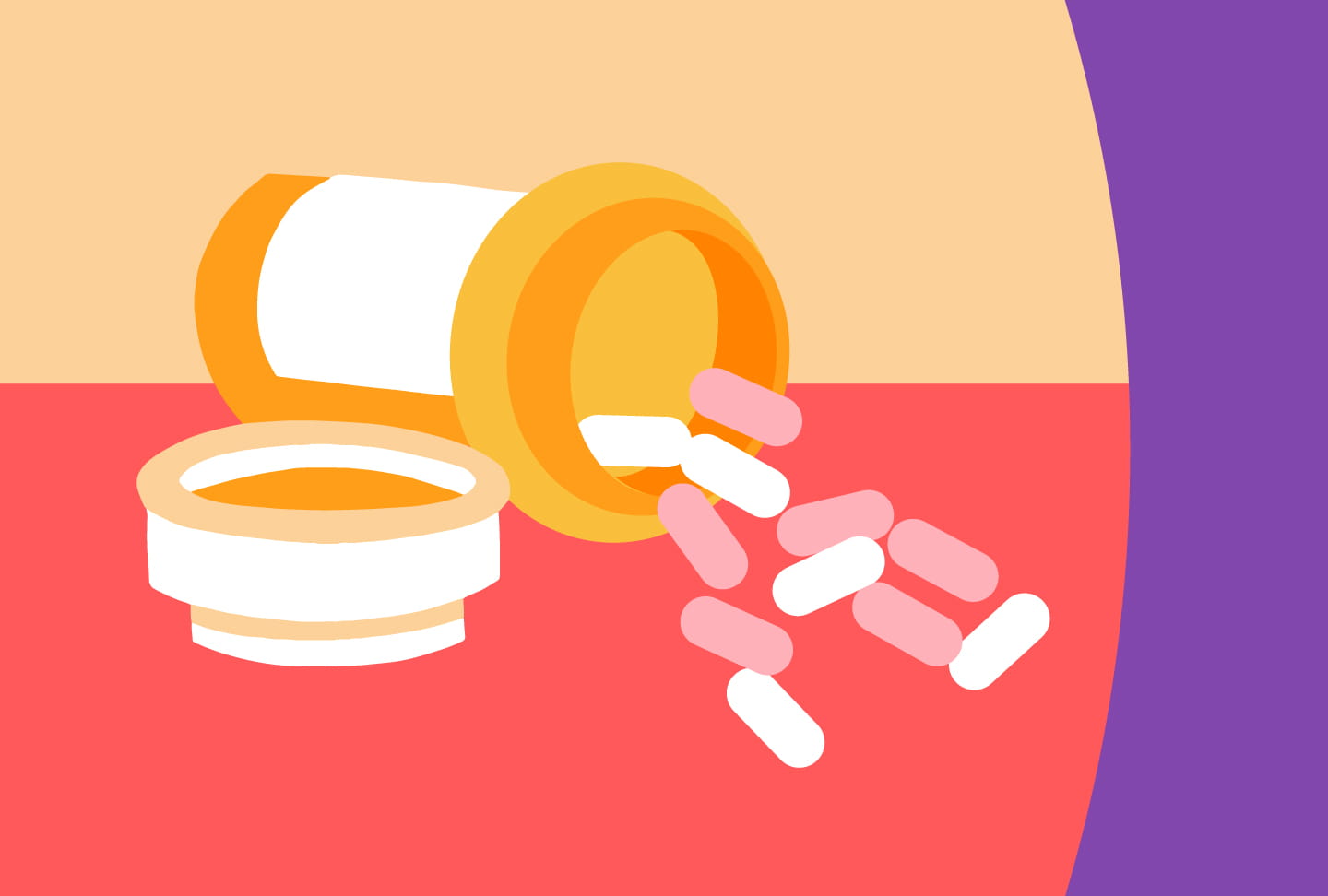
Highlights
Accessing COVID-19 Medications with Wellstar
If you test positive for COVID-19 and are experiencing mild to moderate symptoms, your Wellstar care team can help you get back to feeling better with Paxlovid.
Paxlovid is an antiviral medication that can be prescribed to patients who are 12 or older and weigh at least 88 pounds. It’s best to start the medication as soon as possible, and you must begin taking it within five days of your first symptoms. Paxlovid is a pill you can take at home.
Read the U.S. Food and Drug Administration’s fact sheet about Paxlovid.
Where to get care
If you are feeling sick, you have several options for care. Learn more about the types of care available at Wellstar and what is right for your health needs.
If you have tested positive for COVID-19 with a home test and have mild symptoms, you can speak with a clinician using our 24/7 Virtual Urgent Care. They will evaluate your symptoms and work with you on a personalized care plan, including a prescription for Paxlovid if appropriate.
Patients who have tested positive with a home test can also call their Wellstar primary care clinician about a Paxlovid prescription or visit a retail pharmacy to be assessed by a pharmacist.
Wellstar retail pharmacies and many other pharmacy locations can fill Paxlovid prescriptions. Your Wellstar care team can send your prescription to your local pharmacy.
Find a location that offers COVID-19 testing and treatment. At these locations, patients are either tested on site or can bring in a positive test result from another testing site or an at-home test. Eligible patients will receive a prescription and can have that prescription filled on site.
Getting vaccinated
As new variants of COVID-19 emerge, it’s important to remain vigilant. You can do your part to “stick it to COVID” and keep yourself and the community safe by getting vaccinated. The COVID-19 vaccine is available at a Georgia Department of Public Health location or your local retail pharmacy. Find a vaccination site near you.

Newsroom
Halloween 2023: Trick-or-TREAT and Play it Safe
Halloween is right around the corner, and while many Georgians are planning to celebrate this year, many may have questions about how to do so safely.
Wellstar’s very own Dr. Branstetter recently shared his recommendations to minimize the risk from the triple-demic and to keep family and friends safe while celebrating holiday occasions such as Halloween by ensuring you are up to date with the latest vaccines that help prepare our immune systems to prevent illnesses.
"Some of my patients have already elected to get both their COVID and influenza shots. I don't think there is a perfect way that we need to go through and get these vaccines. The important thing is, if they're indicated for you and you're due for a vaccine, go ahead and get those done." - Dr. Danny Branstetter, Medical Director for Infection Prevention at Wellstar Health System in the Marietta Daily Journal
Millions of people in the U.S. and around the globe, including children of all ages, look forward to the festivities of Halloween. But–lest we forget–it's virus season, and RSV, flu, and COVID-19 are still lurking in the shadows. How can we celebrate while keeping our families, friends, and neighbors safe from the community spread of these viruses, which is essential to everyone's health and well-being? Get creative and think about safety. Think "TREAT!"
Let's Trick-or-TREAT
Wellstar has created these tips for a healthy Halloween celebration while keeping in mind it's a holiday full of tricks and TREATS!
- T – TRUST YOUR JUDGMENT - Take safety precautions during the holidays, like washing your hands, spending time outdoors to help minimize close contact with others, and staying home if anyone in your family has flu-like symptoms. Making good and healthy decisions is the key to reducing exposure to viruses.
- R – ROADWAYS - Remember to watch the roadways on Halloween! Lack of visibility from dusk into the evening while children and families are trick-or-treating can be dangerous. Watch for children in dark clothing on roadways, medians, curbs, driveways, and alleys. Consider adding reflective tape to children's costumes and never assume the right of way; just because you can see a car doesn't mean they can see you. Let's keep everyone safe this spooky season!
- E – EAT- Halloween is an opportunity to avoid being tricked by treats. Make sure children wait to return home before consuming candy, helping prevent any reactions to food allergens. Allow time for inspecting potentially tampered-with goodies, only consume factory-wrapped treats, and toss any spoiled or suspicious items. Examine treats like stickers and candy wrappers for choking hazards and monitor the amount of sugar consumed.
- A – AVOID - Trick-or-treating alone can be a hazard; ensure a trusted, responsible adult accompanies children on their adventure. You can walk in groups or implement the buddy system in the neighborhood. Steer clear of distracted walking by staying off our phones while trick-or-treating. Avoid spooky situations and only approach homes with the porch light on!
- T – TECHNOLOGY - Whether you are looking to plan the best trick-or-treating route, watching movies, or connecting with family and friends across the miles, technology can help unite us this holiday season. If you have a household with immunocompromised members, think about hosting a virtual pumpkin-carving contest or FaceTime a kid's costume fashion show to help families have holiday fun while staying safe.
Wellstar is committed to providing high-quality, tailored and compassionate care. For more information and the latest updates on COVID-19, visit wellstar.org/COVID-19.
We use cookies for booking and general analytics. Learn more about or internet privacy policy.
